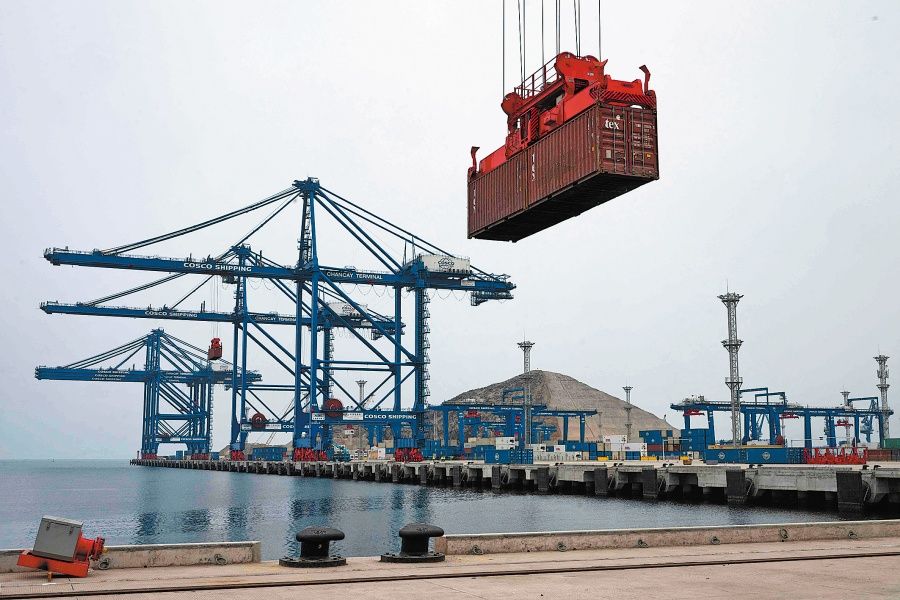source: editor:Zhang Wenni

View of the Chancay port in Chancay, 78 kilometers north of the Peruvian capital Lima, on Oct 29. CRIS BOURONCLE/AFP
Thanks to significant investments and growing trade, China is expanding its presence throughout Asia-Pacific Economic Cooperation markets. This is particularly true in Peru, where the Asian giant has become the top mining investor.
China now accounts for a big part of Peru's mining investment portfolio. China's investment is particularly focused on copper, of which Peru is the world's third-largest producer.
These links have gained added significance alongside the growing importance of the APEC forum, the annual meeting of which is being held in Peru and attended by leaders from its 21 member economies.
China's growing presence in Peru is significant not only for the country but also for its neighbors in South America and other partners in Asia, said Carlos Aquino, a professor of economics at Peru's National University of San Marcos, which is located in the capital, Lima.
"Peru lacks sufficient roads, railways and ports, and these are precisely the sectors where Chinese investment has increased in recent years," Aquino told China Daily.
Aquino added that China's investment in the country increased initially in mining, and later, its influence grew in Peru's hydroelectric plants, road construction and other infrastructure.
A particularly important example is China's large investment in the Chancay mega port, which will begin trial operations in November and with ships traveling to and from Shanghai. The port is expected to emerge as a more efficient hub for trade among APEC economies in Asia and South America, economist Juan Carlos Mathews said.
Chancay is jointly owned by China's COSCO Shipping and Volcan, a Peruvian mining firm.
China's investments in Peru's mining sector reach about $11.4 billion across seven mining projects in Peru. These investments are distributed across Peru's key mining regions including Apurimac, Cajamarca, Ancash, Arequipa and Moquegua. Copper projects account for 73 percent of the total investment in mining.
And along with growing investment in mining and infrastructure, trade between China and Peru has expanded. Last year, trade volume between the two countries reached $37.69 billion, up 0.8 percent year-on-year, according to the statistics published on the official website of China's Ministry of Foreign Affairs.
Fishmeal and blueberries are key products besides copper. This is partly facilitated by a free trade agreement, or FTA, signed in 2009. Chile and Costa Rica also have FTAs with China.
As it is, Peru is the second-largest destination for Chinese investment in Latin America after Brazil.
Last April, Peru and China met to promote cooperation in fields such as minerals, energy, manufacturing and agriculture. During the meeting, Peruvian President Dina Ercilia Boluarte Zegarra said China's investment is key for national development plans.
"Beyond the thematic focuses related to trade, investment, digitalization and inclusive sustainable growth, Peru uses these spaces for cooperation, technology transfer, benchmarking, and learning from other experiences, such as special economic zones," said Mathews. "It also capitalizes on one-on-one negotiations, something Peru has effectively leveraged, becoming one of the most open economies in Latin America."
Aquino said APEC members anticipate signing trade and modernization deals at the meeting in mid-November.
"China has a significant impact because it is the largest trading partner of almost all the APEC economies, especially Peru and Chile, and it is also a major investor," Aquino said.
In addition, the APEC meeting aims to continue to increase trade, investment and economic cooperation among members.
The writer is a freelance journalist for China Daily.